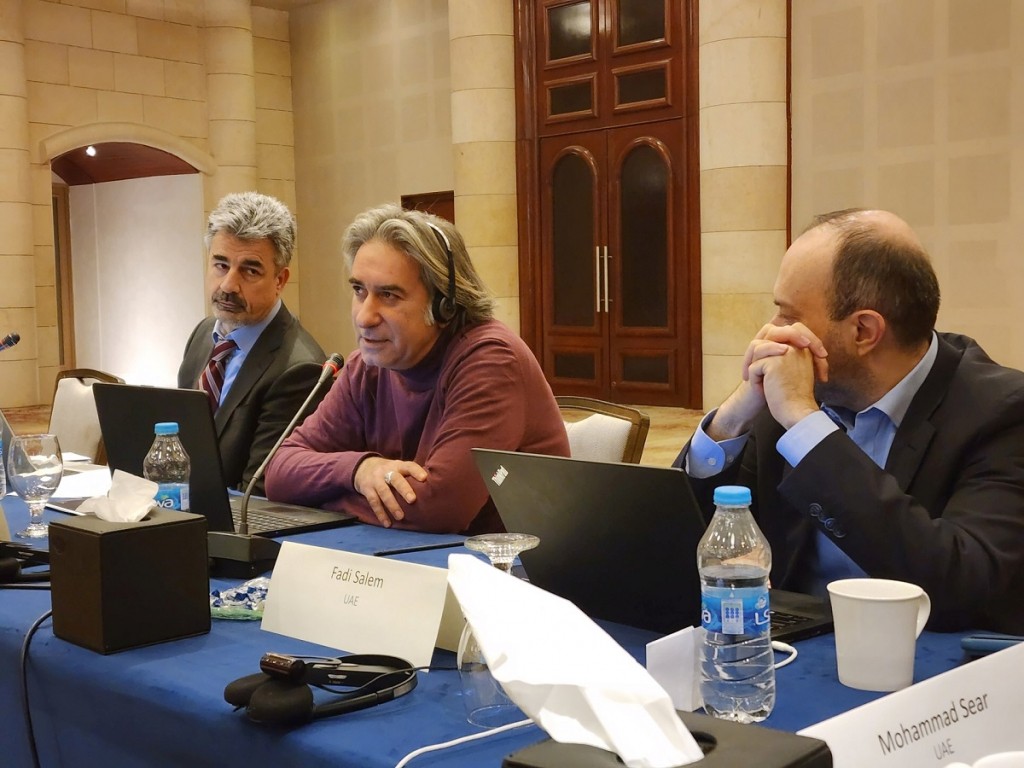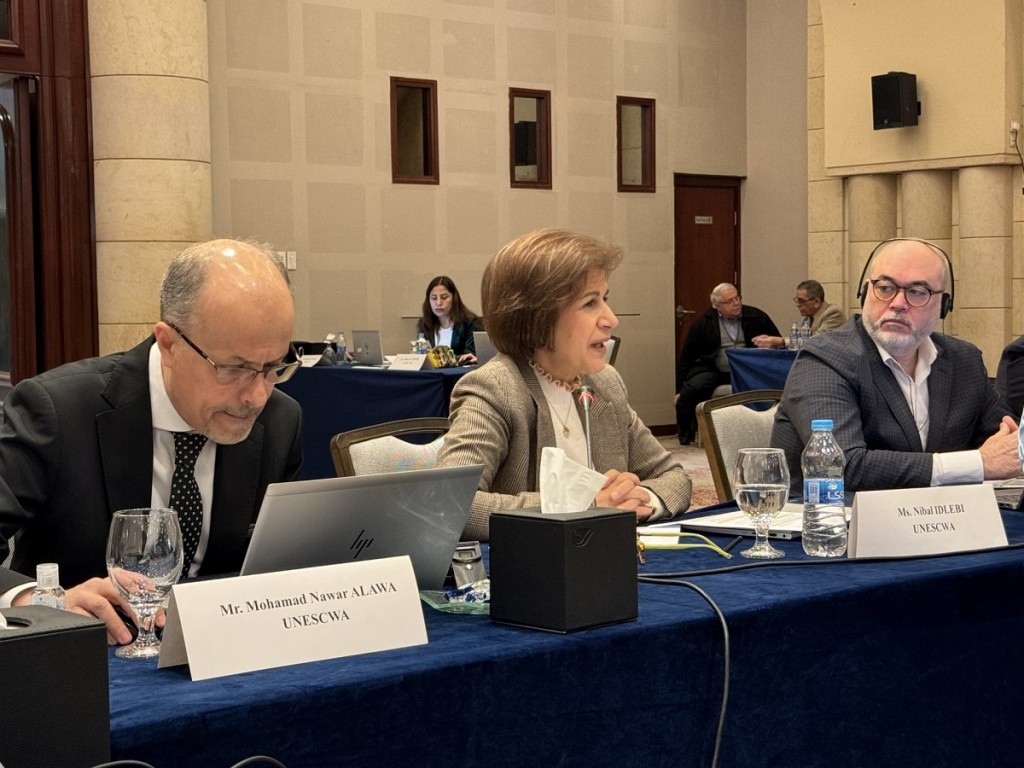Dimitris Gouscos, Assistant Professor at the Department of Communication and Media Studies of NKUA, delivered a study and presentation in an Expert Group Meeting of the United Nations Economic and Social Commission for Western Asia (UN ESCWA) on “Technology and innovation for Arab public institutions”, which took place in Amman, Jordan, during 28-29 February 2024.
Substantial investments in emerging technologies seek to enhance government operations and service delivery, fostering heightened citizen engagement. To deliver on these aspirations, innovation assumes a critical role, fostering sustainable integration of emerging technologies in the public sector, empowering exploration of possibilities, and facilitating tailored solutions.
The meeting focused on the importance of enhancing the use of emerging technologies and innovation in Arab public institutions for better government operations and services. It included discussing recent ESCWA studies, and showcasing international best practices in digital innovative government, including from Arab countries.
The meeting was an opportunity to review several proposed methods to benefit Arab countries from technology and innovation within the public sector and to finetune the main report of ESCWA ENACT Project that provides a framework for the advancement of digital government in the Arab region. It showcased case studies from Arab countries along with best practices from developed and developing countries. Some of those case studies are published on the Arab Open and Innovative Government Portal.
Participants included public officials and experts in digital transformation and administrative development from the public and private sectors, and experts from international organizations, the United Nations, technology companies, and academia.


Executive Summary with the main points and recommendations of the study by Assistant Professor Gouscos

This report presents InnoCook, a process model to be used by Arab public institutions to produce technology- and process-based innovations that can help meet the SDGs, encompassing SDG16 and beyond, as well as RITE objectives.
The InnoCook model attempts to strike a balance between a descriptive and a prescriptive approach to innovation work. As such, it does not so much focus on a single monolithic process to follow for innovating, but rather describes different pathways to innovation, taking stock of examples, practices, methods and tools and exist already, accommodating them within a uniform framework in a meaningful manner. Thus, the model provides some structure for the processes to be followed for innovation work, while at the same time seeking to leave room for freedom and creativity at different points in the course of this work.
In this respect, it follows a cooking metaphor, to build on the inherently familiar, social, creative and taste-based aspects of cooking. It comprises several ingredients (27 in total), each analysed into different flavours, that are all drawn from what exists already to cover different aspects of an innovation process. These ingredients are then grouped into the who, what, why, where, when and how dimensions of an innovation effort, to allow public institutions to make and enact their own storified plans for innovating. Then, the model provides an overall guideline in the form of basic steps for preparing a full meal, that corresponds to an innovation effort overall, from inception and planning all the way to enactment and evaluation.
In the full report, the model itself is presented in Chapter 2, whereas the different elements from which its ingredients are drawn, as well as different scenarios and advice for its use by Arab public institutions, are presented in surrounding Chapters 1, 3 and 4.
With respect to technology, the InnoCook model is not bound to any specific emerging technology per se but remains rather technology-agnostic. That said, it builds on the role of emerging technologies as an enabler for innovation, by accommodating corresponding ingredients and process advice.
The final recommendations that come out of this modelling work, and which at the same time constitute drivers for designing the InnoCook model, try to use technology in an innovative, rather than routine, way; try to make innovation a part of the government day-to-day, rather than an exceptional activity; and try to approach innovation in a spirit of co-creation, rather than standalone work. It is hoped that these recommendations, together with the InnoCook model itself, can help Arab public institutions find new and more effective and engaging pathways to innovation.








 The session has ended for security reasons.
The session has ended for security reasons.